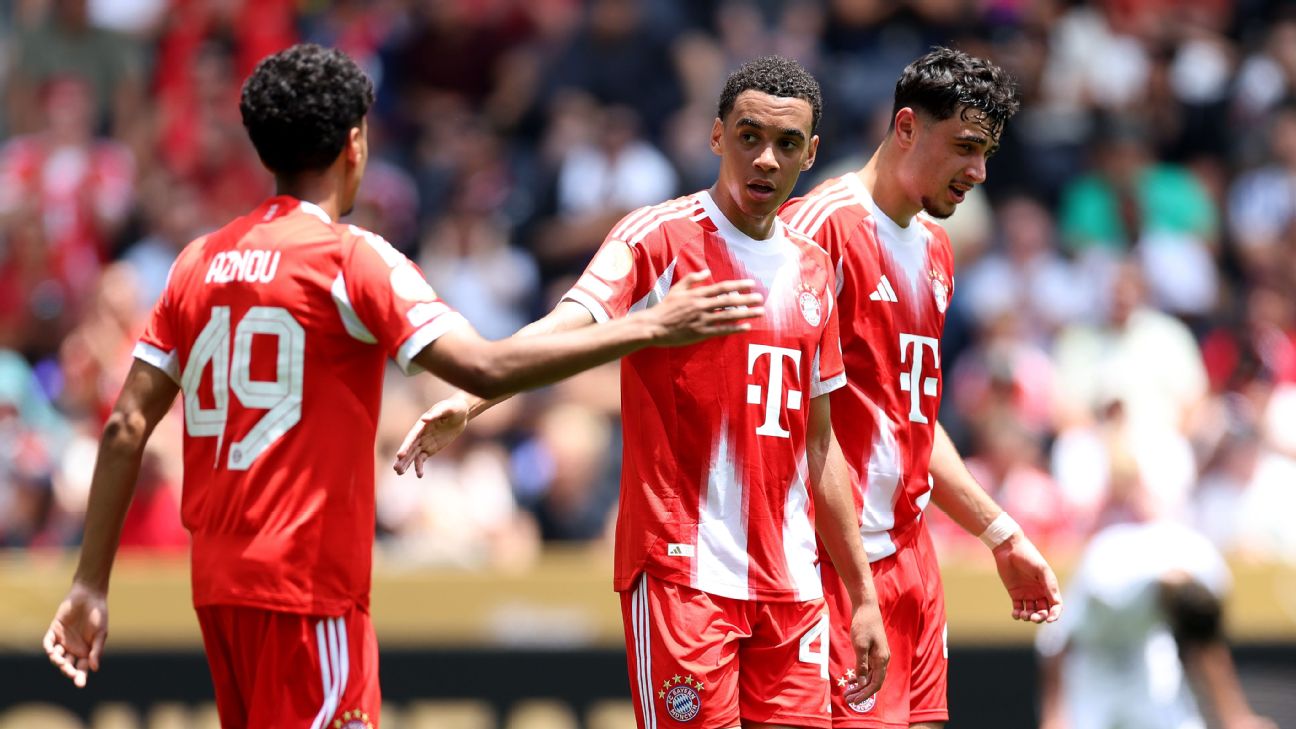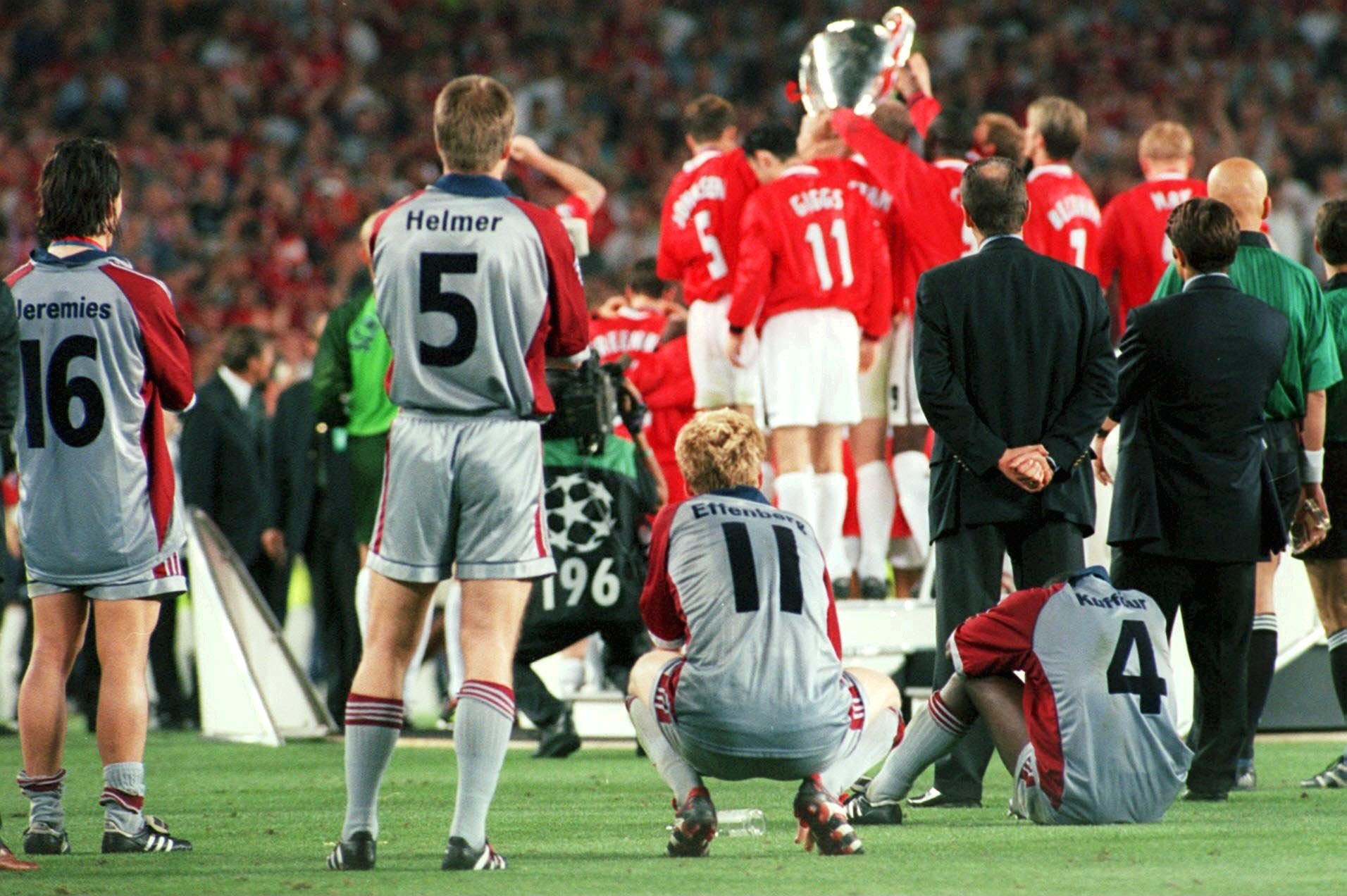
FC Bayern Munich, commonly known as Bayern, is a prestigious football club based in Munich, Germany, founded on February 27, 1900. Widely regarded as the most successful football club in Germany and one of the top clubs in Europe, Bayern Munich has never been relegated from the Bundesliga, the top tier of German football. Known for its passionate fanbase, Bayern boasts a global following, with strong support from countries such as Germany, China, and the United States. The club's nickname, “Die Roten” (The Reds), reflects their iconic red shirts, while their nickname “FC Bayern” is synonymous with their dominance in both domestic and international football.

Bayern Munich has won an impressive 70+ major trophies, including a record 32 Bundesliga titles, 20 DFB-Pokal (German Cup) trophies, and 6 UEFA Champions League titles. The club's success is further highlighted by their consistent dominance in European football, having won the prestigious European Cup/Champions League six times. Bayern's achievements extend beyond domestic football, with notable performances in various international competitions such as the UEFA Super Cup and FIFA Club World Cup, further solidifying its status as one of the most successful clubs in Europe and the world.
Bayern Munich's history can be traced back to its founding in 1900, when a group of football enthusiasts in Munich formed the club. Early successes were marked by regional victories, but Bayern's true rise to prominence began in the 1960s. The club's early decades were marked by a steady progression, with Bayern securing several domestic titles. However, it was during the 1970s that Bayern Munich cemented its place in football history, winning three consecutive European Cups and achieving domestic dominance in the Bundesliga. The emergence of legendary figures like Franz Beckenbauer, Gerd Müller, and Sepp Maier defined the club’s success during this era, making Bayern Munich a force in European football.
/cdn.vox-cdn.com/uploads/chorus_image/image/73040776/1044129442.0.jpg)
Bayern's golden era in the 1970s marked the beginning of their dominance, but the club continued to grow in the decades that followed. They maintained domestic supremacy while steadily increasing their global influence, notably with the opening of the Allianz Arena in 2005, which became a symbol of the club’s modernity and ambition. Bayern's international success reached new heights with their victory in the 2013 UEFA Champions League, and they went on to complete a historic treble in the same year by winning the Bundesliga and DFB-Pokal.
In the 2010s, Bayern Munich continued to set the standard in German football. Under the management of Jupp Heynckes, they achieved another treble in 2020, claiming the Champions League, Bundesliga, and DFB-Pokal in a dominant season that showcased their tactical brilliance and depth. The club has maintained its position as the dominant force in German football and remains one of the top clubs in Europe, consistently competing for and winning top-tier titles.

Bayern Munich's modern era also saw the rise of stars like Robert Lewandowski, Thomas Müller, and Manuel Neuer, who have become symbols of the club's ethos of excellence. Bayern's commitment to developing top-tier talent is evident through its well-established FC Bayern Campus, which focuses on youth development and talent acquisition. The club’s successful youth academy has produced numerous players who have gone on to represent both Bayern and other top clubs around the world.
Bayern Munich's fanbase, known as "Bayernfans," is one of the most dedicated and passionate in world football. The club enjoys widespread support in Germany and beyond, with its anthem "Stern des Südens" symbolizing the strong sense of unity and pride among its supporters. Bayern's fierce rivalries with clubs such as Borussia Dortmund and Schalke 04 have led to some of the most intense and competitive matches in European football.

Today, Bayern Munich is not only a football club but also a social and cultural institution with a profound impact on German society and global football. With a modern stadium, a rich history of domestic and international success, and an ever-growing fanbase, Bayern Munich continues to set the standard for excellence in European football. Through its continued focus on both domestic and international triumphs, the club remains at the forefront of European football, constantly striving for new victories and milestones while maintaining its legacy as one of the most prestigious football clubs in the world.
Bayern Munich, founded on February 27, 1900, emerged from a gathering at the Gisela restaurant in Munich, where Franz John and a group of young football enthusiasts created a club that would soon become a cornerstone of German and European football. The club’s early years were marked by struggles, with Bayern playing in local leagues and experiencing financial difficulties. However, its commitment to football and ambition to grow as a competitive team laid the foundation for future success. The club’s first official victory came in 1906, when Bayern secured a victory in the Bavarian Championship, a significant achievement that set the club on its path to becoming one of the greatest football clubs in the world.

Bayern Munich’s early growth as a football club came during a period of national instability and competition with other Munich-based clubs. The team spent its formative years moving between different local grounds, but in 1925, Bayern Munich took a significant step in their development by moving to the Städtisches Stadion in Munich, making the club the first in the city to own a football stadium. Bayern’s success in these early years was punctuated by Bavarian Championships and solidifying its place as one of the top regional clubs.
Bayern Munich began to gain recognition in the German football scene by consistently finishing at the top of the local leagues, while also playing an exciting, attacking style of football that captured the attention of fans and critics alike. Despite the turmoil caused by World War I, Bayern’s ambition continued to grow, culminating in their victory in the German Championship in 1932.
The 1950s and 1960s marked the start of Bayern Munich’s golden era, with the club gradually gaining a dominant place in both German and European football. Under the guidance of coach Zlatko Čajkovski, Bayern Munich achieved significant national success, winning several Bundesliga titles and firmly establishing itself as a force in German football. In 1954, Bayern Munich achieved a major milestone by winning the German Cup, and the club’s reputation began to soar internationally.

The arrival of Franz Beckenbauer, Gerd Müller, and Sepp Maier during this period further solidified Bayern’s prominence. In 1974, Bayern Munich won their first European Cup by defeating Atletico Madrid in the final. The 1970s were to be Bayern’s golden age, as they went on to win three consecutive European Cups from 1974 to 1976, cementing their place as a top European club.
Despite the dominance of the 1970s, Bayern Munich faced a period of decline in the 1980s and 1990s. While the club continued to perform well domestically, they failed to replicate the same success in Europe. The team struggled with inconsistency in both domestic and international competitions. However, Bayern Munich remained a key fixture in German football.
The 1980s were characterized by internal struggles, including financial difficulties and failure to live up to the high expectations set in the previous decade. In the 1990s, Bayern Munich faced a significant challenge with the rise of other clubs, notably Borussia Dortmund, and the club experienced moments of financial instability. Despite this, Bayern Munich continued to attract talented players, and in 1996, they won the UEFA Cup, signaling the beginning of a new era of success.

The 2000s and 2010s were a period of stability and dominance for Bayern Munich, particularly in German football. In the early 2000s, the club revitalized itself under Uli Hoeneß and Karl-Heinz Rummenigge with an eye on both domestic success and international glory. The opening of the Allianz Arena in 2005 became a symbol of Bayern’s ambition and a key factor in its growth.

In 2001, Bayern Munich won their fourth European Cup, adding to their previous successes. The club then achieved further glory in 2010, with the signing of star players like Arjen Robben and Franck Ribéry, who played pivotal roles in the team's resurgence. However, Bayern’s real triumph came in 2013 when they clinched their fifth European Cup by defeating Borussia Dortmund in the final. This was part of a historic treble, as Bayern also won the Bundesliga and DFB-Pokal in the same season.
In 2020, Bayern Munich achieved an even more extraordinary feat by winning the Champions League, Bundesliga, and DFB-Pokal in a single season, completing an unprecedented treble. This success was driven by the likes of Robert Lewandowski, Thomas Müller, and Manuel Neuer, ensuring Bayern Munich’s continued dominance in both German and European football. With a focus on youth development, world-class management, and strategic player recruitment, Bayern Munich’s position as a global powerhouse remains secure as they continue to compete for top honours.

The ownership of FC Bayern Munich follows a unique and innovative model that blends member-based governance with corporate practices. This model ensures the club remains financially stable while keeping its cultural and traditional identity intact.

Bayern Munich's governance and management structure ensure the efficient running of its operations while staying true to its traditions. The club combines a professional business approach with a member-driven framework.
/cdn.vox-cdn.com/uploads/chorus_image/image/73219318/2042568183.0.jpg)
Bayern Munich operates with a strong focus on financial sustainability and commercial growth, with diverse revenue streams to support its operations.

Bayern Munich has a strong tradition of youth development and places great emphasis on investing in its academy and infrastructure.

FC Bayern Munich is one of the most successful and historic football clubs in Germany and Europe. With a rich history dating back to 1900, Bayern Munich has amassed a remarkable collection of domestic and international trophies, including 32 Bundesliga titles, 20 DFB-Pokal trophies, and 6 UEFA Champions League victories. Bayern's consistent success on the field, coupled with a dedicated fanbase, has solidified its place as one of the most influential and prestigious clubs globally. Below is an extensive list of Bayern Munich's major honours and achievements.
Bundesliga (German Top Division) Titles – 33 Titles
DFB-Pokal (German Cup) Titles – 20 Titles
DFL-Supercup (German Super Cup) Titles – 10 Titles
Champions League / European Cup Titles – 6 Titles
UEFA Cup / Europa League Titles – 1 Title
UEFA Super Cup Titles – 2 Titles
Bundesliga and DFB-Pokal Doubles – 12 Titles
Bundesliga and DFL-Supercup Doubles – 4 Titles
Trebles (Bundesliga, DFB-Pokal, and Champions League) – 2 Titles
German Orders:
Commander of the Order of Merit of the Federal Republic of Germany (1982)
Officer of the Order of Merit of the Federal Republic of Germany (2001)
European Records:
Most consecutive wins in the Bundesliga (19) – Between 2019–2021
Longest unbeaten run in the Champions League (11 matches) – Between 2019–2020
Most consecutive victories in UEFA Champions League (10)
Largest margin of victory in a European competition (Bayern's 7–0 win against FC Roma in 2014)
Books
Websites
Articles
Interviews and Documentaries


Becoming a leading global provider of digital solutions and services for the sports industry, enabling our clients to achieve their goals and reach their full potential.
We aspire to be a trusted partner and advisor to our clients, leveraging our expertise and passion for sports to help them succeed in a rapidly changing market.








